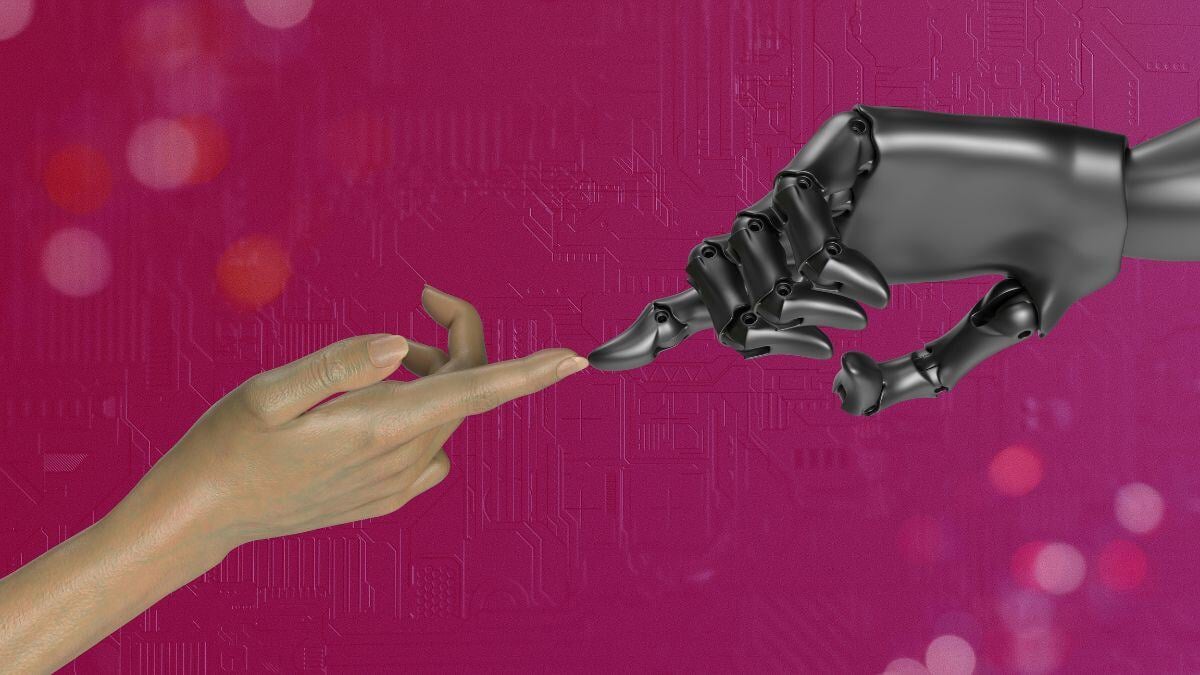The Church in an AI Future
Author: John Stonestreet

Author: John Stonestreet
As we near the end of the year, Breakpoint will look at the most important issues Christians faced in 2024. Every generation faces challenges. We may have hoped for different ones, but God chose to put us in this time and this place. These are the “You Are Here” arrows for the Church that help us better understand the moment we’re in.
One of the “You Are Here” stories of 2024 is the rise of Artificial Intelligence. This isn’t merely a story about new and more powerful technologies. It’s a story about how society thinks of itself—how it understands what it means to be human.
The “mad scientist” rarely begins as a villain. From Dr. Frankenstein to Spiderman’s Doc Ock, villains are often the victims of a combination of good intentions, unstoppable curiosity, and way too much arrogance. Their plights on screen mirror real life, as evidenced by artificial intelligence.
In his book, 2084: Artificial Intelligence and the Future of Humanity, Oxford professor and Christian apologist Dr. John Lennox argued that the promise of AI outpaces the reality of it. AI may be great at specific, repetitive tasks, like playing chess, constructing sentences, or identifying precancerous tissue on a CAT scan. It isn’t as capable of other things, like navigating an unfamiliar room or detecting sarcasm.
This is because, at least so far, AI lacks the kind of generalized intelligence that allows us to move from task to task, to think in the abstract, to apply background knowledge, to use common sense, and to understand cause and effect. For all the hype around “machine learning,” AI systems continue to be, at a fundamental level, programs that do what their creators tell them to do. The human mind, in other words, is exceptional and unlike anything the world of computing has yet produced, although AI technologies are becoming more powerful and capable day by day.
How Christians should view and use AI was the topic of our Breakpoint Forum back in February. Abdu Murray, a seasoned cultural and religious commentator, offered a helpful theological framing of AI:
[T]his is spoken of in the Bible essentially as that sort of, for lack of a better application to it, that original sin where we take our God-given purpose, and we try to one-up God. Adam and Eve‘s sin was that they didn’t want to be with God; they wanted to be God. And in our current digital Garden, what we’re finding is that in creating and then bragging about a computer system that outdoes us and then renders us, for lack of a better word, obsolete, we brag about it because we are one-upping God. We are becoming almost super transcendent over the Transcendent One. And why I say this is not to scare us, but to give us comfort because there’s ancient wisdom in a book for our modern issues, and if we see that, then maybe we can see a way forward. If we see a book that explains the human condition as it actually is, maybe there’s a way out of this digital Garden without imbibing too much of the fruit.
In August, the Colson Center released a What Would You Say? video with three main takeaways about AI. First, it isn’t as smart as many think (and claim). Second, it doesn’t really create. It only imitates and extrapolates, although it’s impressive how it does even that. Finally, human intelligence is not like a computer. It is unique.
The promises of AI are indeed amazing. The labor- and time-saving potential will save humanity hours of mindless tasks, and we’ve not even begun to realize the potential for medicine, among other things. However, potentials are not actuals, and history is full of unintended (and intended) applications and consequences of technology.
The only way forward is to be clear on human exceptionalism and human fallenness. We must know the implications of both being created in the image of God and being an heir of Adam’s sin. Only then will it be possible to navigate the changing landscape of AI with God-given purpose.
The resources of the Colson Center give Christians the clarity, confidence, and courage they need for this cultural moment. As we near the end of 2024, generous donors have provided a $350,000 matching gift challenge for the Colson Center audience. Your best gift before December 31 will fuel another year of helping people think from a Christian worldview to live courageously as the Church in this moment. To borrow from G.K. Chesterton, we envision a Church that moves the world, not a Church moved by the world.
Please join us. Give your best gift toward our 350k match now at colsoncenter.org/November.

Author: John Stonestreet and Chuck Colson

Author: John Stonestreet